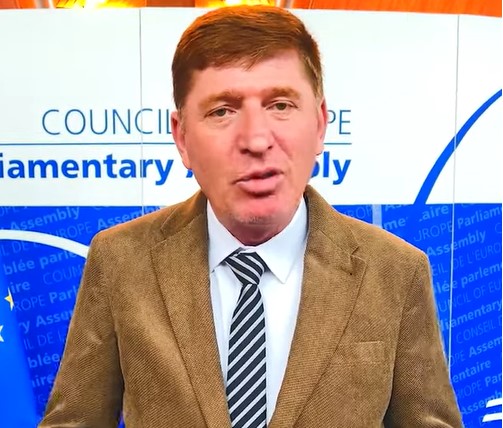
Russia's Border Guards Cease Service at Armenia and Iran Borders: Is Russia Conceding to Armenia or Taking a Step Back?
Starting January 1, 2025, Russian border guards will cease their service at the Armenia and Iran border crossing points. Russian President Vladimir Putin and Armenian Prime Minister Nikol Pashinyan agreed on this during a meeting in Moscow.
The Russian Federal Security Service (FSB) includes four border units in Armenia’s border administration: Gümrü, Armavir, Artaşat, and Mehri.
It was noted that Nikol Pashinyan presented the “Intersection of the World” program during the meeting. This program, proposed by Yerevan, serves as an alternative to the Zangezur transportation corridor that passes through Armenia’s Syunik region and connects Azerbaijan to its exclave, the Nakhchivan Autonomous Republic.
It appears that the issue of Russian border troops protecting the Zangezur corridor is being removed from the agenda. This could strengthen Yerevan’s position in security regime talks with Baku.
Elman Fattah, an expert on international affairs and a member of the Founding Board of the III Republic Platform, spoke to ASTNA regarding the topic.
* * *
Question: Mr. Elman, starting January 1, 2025, Russian border guards will cease their service at the Armenia and Iran border crossing points. Is this a positive development?
 Answer: This is the most significant step Armenia has taken towards asserting its sovereignty. After the dissolution of the Soviet Union, Armenia’s decision to entrust the protection of its borders to Russia somewhat compromised its sovereignty. In this context, by beginning to secure its own borders from the first day of the new year, Armenia will have removed the black mark on its state sovereignty.
Answer: This is the most significant step Armenia has taken towards asserting its sovereignty. After the dissolution of the Soviet Union, Armenia’s decision to entrust the protection of its borders to Russia somewhat compromised its sovereignty. In this context, by beginning to secure its own borders from the first day of the new year, Armenia will have removed the black mark on its state sovereignty.
Question: In your opinion, what is Russia conceding to Armenia in doing this?
Answer: Russia is not conceding; it is withdrawing. Currently, Russia-Armenia relations are characterized not by mutual concessions but by mutual reckoning. Until Pashinyan, Armenia was unequivocally a Russian outpost. Under Pashinyan’s leadership, Armenia is taking steps towards true independence from Russia, deepening integration with the West, and, albeit reluctantly, Moscow is still accommodating Armenia’s actions. This is one such instance.
Question: Could the opening of the Zangezur corridor to Russia by Armenia be considered a condition from the Russian side?
Answer: This is unreasonable. Instead of returning the protection of its borders to Armenia, having Russian forces stationed in the Zangezur corridor would benefit Moscow, not Yerevan.
Question: When addressing the border issue with Armenia, one must consider the roles of Iran and Turkey. How will Iran and Turkey position themselves on this matter?
Answer: This is a positive development for both Turkey and Iran. Each of the three major neighboring powers in the Caucasus—Russia, Turkey, and Iran—naturally welcomes the weakening of the others’ positions. Turkey and Iran will be pleased with the withdrawal of Russian troops from their borders.
Question: How will the cessation of Russian border guards’ service at the Armenia and Iran border crossing points affect Azerbaijan? And what should Azerbaijan’s stance be on this issue?
Answer: The impact of this event on Azerbaijan will undeniably be positive. We celebrate the withdrawal of Russian troops from our territory both in 1993 and this year. What could be better than the Russian army moving even further away from our geography?
Question: Some analysts believe that with this agreement, the issue of Russian border troops protecting the Zangezur corridor is removed from the agenda. This could strengthen Yerevan’s position in security regime talks with Baku. Do you agree with this viewpoint?
Answer: I agree with the first part of the opinion. However, the claim that the removal of Russian border troops from the Zangezur corridor contradicts Azerbaijan’s strategic interests is entirely unfounded. This can simply be seen as the loss of the Putin–Aliyev friendship. It is desirable for events to unfold this way for the future of Azerbaijan.













Leave a review